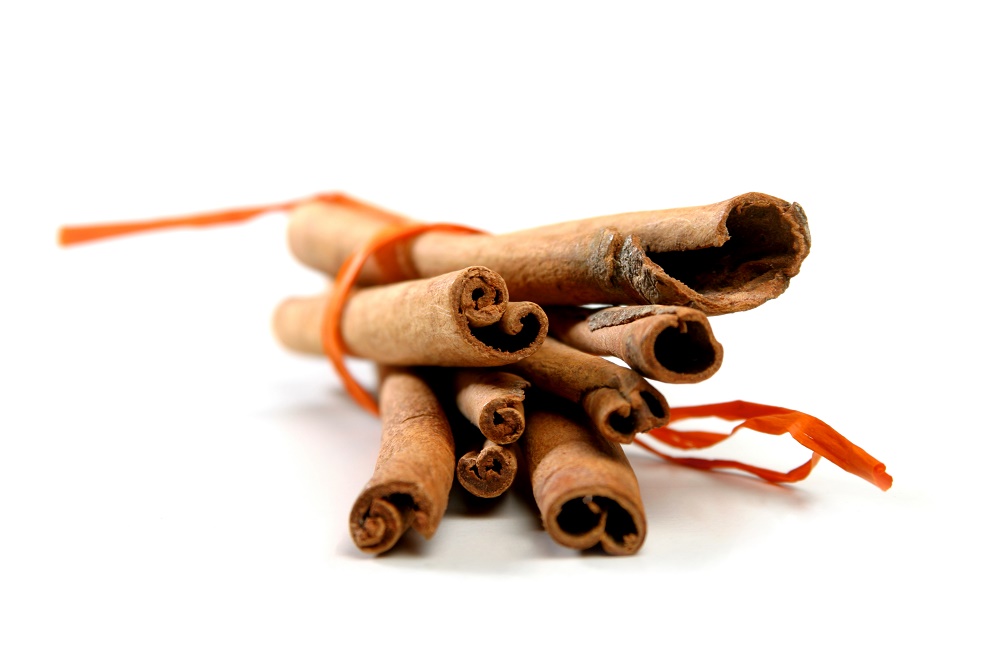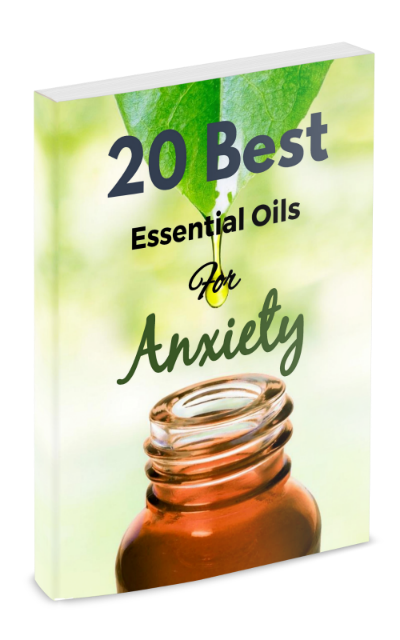We get cinnamon essential oil from the bark of Cinnamomum verum. This tree, also known as the true cinnamon tree or the Ceylon cinnamon tree, is native to Sri Lanka. The spice cinnamon is harvested from it, but also from other trees in the Cinnamomum genus.

True cinnamon grows to be up to fifty feet tall. It produces green leaves and flowers gathered in loose clusters. The fruit of the cinnamon tree is small and purple.
The essential oil of cinnamon is extracted from the bark of the true cinnamon tree using hydrodistillation. It’s also possible to extract essential oil from the leaf of another species of cinnamon, Cinnamomum zeylanicum. The resulting oil has a warm, sweet, and spicy scent.
Use of Cinnamon Essential Oil for the Body
Cinnamon essential oil has several benefits for the body. It improves blood circulation and increases metabolic activity. Cinnamon oil also has anti-inflammatory properties. It can be used for pain relief. It is also known for its ability to reduce blood sugar levels.
The essential oil of cinnamon has antifungal, antibacterial, and antiseptic properties. It can be used to treat infections, including staph infections and gall bladder infections. It can also help with symptoms of various respiratory infections, including the flu and the cold.
Cinnamon essential oil aids digestion. It can help with issues such as nausea and vomiting. It can also help reduce gas, reduce acidity, and treat diarrhea.
Use of Cinnamon Essential Oil for the Mind
Cinnamon essential oil can be used to deal with depression. It can help people who are feeling exhausted by it. It also has a healing effect on the mind and the spirit.
The essential oil of cinnamon can be used to increase awareness. It can enhance spirituality, and it can improve mental and emotional stability. Cinnamon oil can improve concentration.
Cinnamon Essential Oil Can Relieve Depression Caused By:
- General debility and weakness
- Mental fatigue and exhaustion
- Tense and feeling faint
- Feelings of fear, resentment, and hate
Blending Cinnamon Essential Oil for Other Causes of Depression:
- Rosemary and Tea Tree – Inability to focus. Poor concentration and memory
- Orange and Lemon – Massive build-up of frustration and stress
- Clove and Orange – Feeling emotionally wounded from past trauma
- Ginger, Lemon and Orange – Unhappy and confused; loss of self in another person
Cinnamon in Ancient History
Cinnamon has been used throughout the history of humanity. Even though it didn’t grow natively in ancient Egypt, the Egyptians imported it. They used it, along with other spices, in the embalming process.
The ancient Greeks and Romans also held cinnamon in high regard. It was not unusual to find cinnamon in gifts given to show respect to both monarchs and gods. It was mentioned in writings of Herodotus, who noted the belief that it grows in Arabia, and is guarded by mythical creatures. Pliny chronicled the price of cinnamon in his time – a pound of it cost a ten month’s wage. It is also said that the Roman emperor Nero burned a large quantity of cinnamon in the funeral pyre of his wife.
Cinnamon in Modern History
The origins of cinnamon were shrouded in mystery during the early Middle Ages. It wasn’t until the late thirteenth century that the true origins of cinnamon started appearing in the literature. Cinnamon was a coveted commodity in the spice trade, with various merchant powers taking over the monopoly over its trade and eventually losing it.
The medicinal properties of cinnamon were known in the nineteenth century. John Stephenson and James Morss Churchill gave a summary of them in the third volume of their Medical Botany, published in 1837:
“Cinnamon bark is one of the most grateful aromatic stomachics that we possess, and is reckoned to be stimulant, stomachic, astringent, and tonic. It is principally employed, however, as an adjunct to other remedies, to prevent their griping effect, or to cover their nauseous taste. The oil being a powerful stimulant is sometimes employed to allay spasmodic affections of the stomach and bowels, hiccup, and nausea. It is also applied sometimes to relieve the pain of decayed teeth.“
Cinnamon Essential Oil Cautions
Some cautions should be observed when using cinnamon essential oil. If used too much, it is toxic. Using it orally can severely irritate the mouth, intestines, and urinary tracts. Some people are allergic to cinnamon.
People with diabetes should also be careful when using it because cinnamon is known to reduce blood sugar levels. The essential oil of cinnamon should also be avoided when using blood-thinners. Cinnamon essential oil should be avoided during pregnancy or when nursing.


